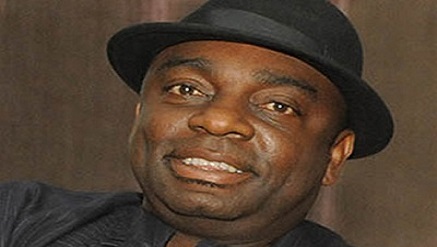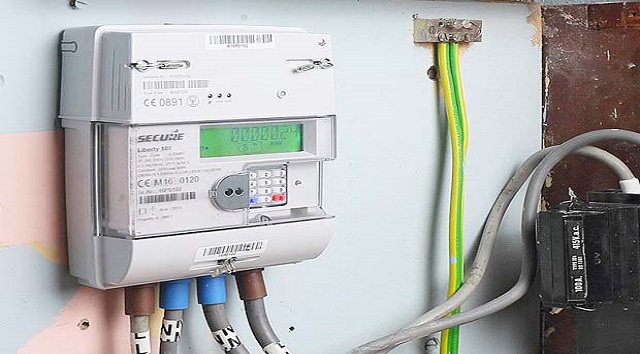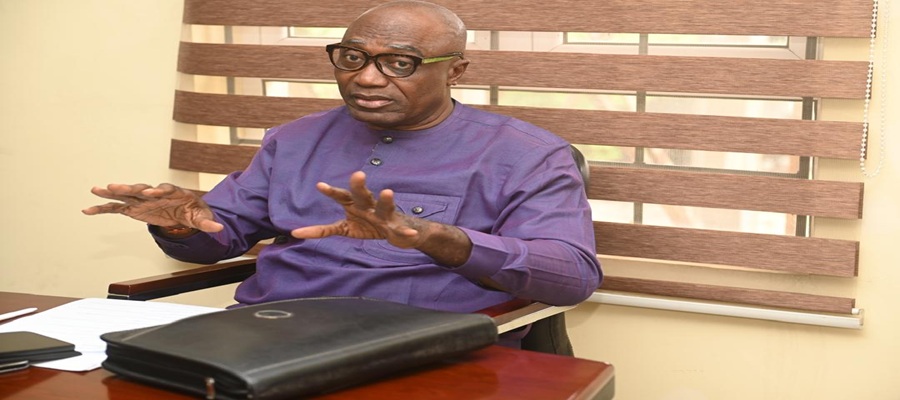General News
Nigerian Content Board Invested $5Bn in Local Content Devt

Ernest Nwapa, executive secretary of Nigerian Content Development and Monitoring Board (NCDMD), said the board had invested $5bn in the country’s economy.
Nwapa explained that the fit was achieved as a result of the board’s insistence that oil and gas manufacturing companies are located in the country to ease the availability of facilities.
Speaking during the inauguration of Benkline Workshop in Port Harcourt on Saturday, Nwapa promised that the Federal Government would support every investment in the country.
He stated that the government was ready to confront any opposition to investment in the nation’s economy, adding that the amount of investment expected within the next five years would be enormous.
The NCDBM boss expressed the need for investors to do their businesses in a legitimate manner in order to ensure the sustainability of their investments.
He said, “This government is going to support every investment that is made here. If you tally the total value of where we have visited to commission facilities in the last four years, you will have $5bn worth of investments in this economy, just by insisting these things are done in our economy. So you can imagine where we would be in the next five years.
“Our commitment is that any investment that is made in Nigeria, we would wrestle anybody to the ground to make sure that work is put in there. If you want to continue in this business, you must do it the way it is done or even better than in other jurisdictions. That is the only guarantee that will make you have a sustainable business.”
Describing Bekline Nigeria Limited, an oil and gas equipment and service provider, as a trail blazer in original equipment manufacturing and services, Nwapa stated that the organisation was ahead of the board’s plan.
He said, “Several pumps from the Nigerian oil and gas industry had been moved out of the country for repairs in the past, but if we have a few companies like Benkline, there will be a reverse migration of technology into the country.
“The strategy we have adopted will attract other people. By the time the big operators begin to put their work here, even the indigenous companies that today have problems with doing things in Nigeria will have a rethink.
“We are challenging the indigenous producer to begin to partner and patronize local service companies so that the market will expand. The market in Nigeria is big on its own but we often fail to realize that Nigeria is often seen as salvation location by other African countries.”
Earlier, Mr. Larry Osai, chairman, Board of Directors, Bekline Nigeria Limited, pointed out that though the owners of the organisation had passed on, their legacies of being among the best in equipment manufacturing for the oil and gas sector.
Osai explained that the workshop established by the company would close the gap in equipment manufacturing and services, saying, “All these would not have been possible if we did not have a government that have put the Local Content Law in place.
“The partners we have today; FRAMO and Eurofiliales have done a lot for the growth of the company and we cannot be grateful enough.”
General News
Indigenous Firm Deploys 400,000 Smart Electricity Meters in 2025

MOJEC International Limited has revealed that it deployed over 400,000 smart meters nationwide in 2025, representing a significant year-on-year growth for the indigenous smart meter manufacturer.

This performance reflected a 33.3 percent increase over the 300,000 meters deployed in 2024, highlighting the scale and acceleration of MOJEC’s metering operations.
Chantelle Abdul, group managing director, attributed the sustained impact to deliberate investments in infrastructure, people, and technology.
“MOJEC operates two state-of-the-art meter production facilities with a combined installed capacity of up to five million meters annually. This scale enables us not just to meet current demand, but to support Nigeria’s long-term metering and energy efficiency goals,” she said.
She further noted that MOJEC’s expansive installer ecosystem, comprising over 5,000 trained professionals nationwide, remains a critical enabler of its delivery advantage, ensuring speed, quality, and compliance across diverse terrains and markets.
The company stated that the deployment surge reflected growing confidence by Distribution Companies (DisCos) and sector stakeholders in MOJEC’s technical capacity, delivery speed, and end-to-end metering solutions.
According to Monday Ubogu, MOJEC’s head of installation, the scale and consistency of delivery set the company apart.
“Within the first three quarters of the year, MOJEC completed about 300,000 installations, accounting for roughly 40 percent of total installations nationwide during that period.
“The momentum continued into the final quarter with an additional 150,000 meters deployed, highlighting our operational depth and nationwide reach,” he said.
Ubogu added that MOJEC’s performance builds on decades of sector engagement, spanning key national metering initiatives including CAPMI, MAF, Vendor Financing, MAP Phases I & II, and NMMP 0, with the company having deployed nearly four million meters since the privatisation of NESI.
According to the company, a substantial portion of the deployment was driven by MOJEC Meter Asset Management Company (M3AC), the Group’s asset management subsidiary, which accounted for about 350,000 installations.
General News
Globacom Donates ₦1Bn to Lagos State Security Trust Fund

In its bid to contribute its quota to the consolidation of security in Nigeria’s commercial capital, Lagos, telecommunications giant, Globacom, has thrown its weight behind the Lagos State Security Trust Fund (LSSTF) with a donation of ₦1 billion.

The generous donation was announced at a Private Sector Breakfast Meeting with CEOs, convened at the instance of the Executive Governor of Lagos State, Mr Babajide Sanwo-Olu, on Friday, January 30, 2026 and shows the company’s commitment to fostering public safety which would in turn, culminate in enhanced prosperity and social re-engineering in the state.
The donation, which is the biggest private-sector intervention from the telecommunications sector to the Fund in recent years, again shows that Globacom is a responsible, responsive and people-oriented corporate citizen.
Globacom disclosed that the intervention emphasized deeper collaboration between government and the state’s business community especially in relation to security, innovation and economic resilience—an agenda which the digital solutions company has unabashedly supported through sustained social investments.
The Executive Secretary/CEO of the Fund, Dr. Ayo Ogunsan, in his display of appreciation described Globacom’s largesse as “a powerful demonstration of corporate citizenship and a strategic investment in the stability of Lagos State,” saying since LSSTF was established to bridge funding gaps in security infrastructure, it desired voluntary contributions from corporate bodies and well-meaning collaborators.
Dr. Ogunsan promised that the ₦1 billion donation will significantly enhance the Fund’s capacity to address critical priorities for 2026, including multipurpose security helicopters and drones, Armoured Personnel Carriers (APCs), water cannons, digital communication equipment and Smart CCTV systems. These assets, he added, were germane to proactive policing, rapid response and intelligence-led operations across the state.
He therefore encouraged Lagosians to support businesses that invest in the safety and development of the state, saying, “When companies step forward to secure our environment, residents should reciprocate by patronizing them. Their support directly impacts the protection of lives, property and economic activity.”
A statement from Globacom explained that the donation was an expression of the company’s staunch belief in Nigeria’s future. “At Globacom, we see security not as a government burden alone, but as a shared responsibility. When people feel safe, enterprise grows, creativity flourishes and hope becomes practical. Our support for the LSSTF is about protecting the everyday dreams of millions of Lagosians,” he noted.
With this donation to the LSSTF, Globacom has furthered its tradition of investing directly in the conditions like safety, confidence and stability which help commerce to thrive. Consequent on the support, LSSTF is gingered to raise the bar of security thereby concretizing Lagos State’s position as Nigeria’s safest and most vibrant commercial hub.
This recent financial intervention from Globacom is in tandem with its avowed commitment to social responsibility that is practical, timely, scalable and aligned with national priorities.
The company’s interventions in the past decades have spanned relief efforts for flood-affected communities, support for displaced persons, advanced youth skills through structured training programmes, and investments in education, culture and digital inclusion.
General News
WIEG to host Nigeria’s first International Investment Summit in Lagos

World International Economic Group (WIEG) Nigeria has announced plans to host its inaugural International Investment Summit on Feb. 25 and 26 at the Four Points by Sheraton Hotel, Oniru, Victoria Island, Lagos.

WIEG
The summit, themed “Nigeria’s Next Frontier: Unlocking Sustainable Investments for Economic Transformation,” is aimed at connecting investment-ready Nigerian enterprises with global capital while addressing long-standing challenges facing micro, small and medium enterprises (MSMEs), cooperatives and women-led businesses.
Speaking at a pre-summit press conference on Friday at Compact Communications Ltd., GRA Ikeja, Lagos, Mr. Bassey Essien, WIEG’s Project & Event Consultant said the summit would serve as a structured platform linking policy, finance and enterprise growth.
Essien identified limited access to structured funding, poor investment readiness and weak documentation as major barriers confronting Nigerian businesses, despite the availability of domestic and international capital.
“Enterprises that succeed understand the importance of preparation. Some invest as much as N200 million in professional feasibility studies to meet the standards of banks and institutions such as the African Development Bank. That level of preparation enables access to collateral-free funding,” he said.
According to him, weak policy continuity, inadequate post-intervention monitoring and fragmented regulatory frameworks have continued to undermine business growth in the country.
“Policies often change with governments, and there is little tracking after interventions. More importantly, many businesses are not prepared in ways financiers require,” Essien noted.
He explained that the summit would convene policymakers, investors, development finance institutions and pre-screened MSMEs and SMEs operating in priority sectors, including the creative industry, agriculture, energy transition, finance and aviation.
Essien described the creative sector as a major contributor to Nigeria’s economy, accounting for about 2.5 per cent of the Gross Domestic Product, but said weak financing structures, piracy and poor intellectual property (IP) protection had limited its growth.
Highlighting the summit programme, he said Day One would feature conferences on macroeconomic issues, policy reforms and enterprise growth, while Day Two would focus on sector-specific deal-making roundtables.
“These deal rooms will be organised by sector — from aviation maintenance, repair and overhaul (MRO) to renewable energy — with lawyers, financiers and policymakers present to fast-track transactions,” he said.
Essien added that the Nigerian Investment Promotion Commission (NIPC) would be present to ensure post-event monitoring and tracking of investment deals concluded during the summit.
He disclosed that the creative economy segment would be supported through partnerships with the Association of Movie Producers of Nigeria (AMP) and financial institutions to fund viable projects in Nollywood, music and fashion.
“Intellectual property regularisation is critical. Once ideas are properly documented and protected, investors gain confidence,” he said.
On energy and aviation, Essien said the summit would spotlight renewable energy solutions to reduce dependence on generators and promote the establishment of commercial MRO facilities to curb the high cost of aircraft maintenance abroad.
He also announced the participation of B Lab Africa, a U.S.-certified organisation focused on environmental, social and governance (ESG), diversity, equity and inclusivity standards, noting that the initiative would help small businesses improve governance and access global funding.
Essien revealed that investment commitments estimated at about 500 million dollars were expected to emerge from the summit.
“This is a private-sector-led, non-partisan initiative that places no financial burden on government. It is focused on job creation, empowering women-owned enterprises and improving investor confidence through transparent and secure processes,” he said.
He urged Nigerian entrepreneurs and SMEs to prioritise proper documentation, professional advisory services and IP protection to position themselves for sustainable growth.
“We are creating a structured pathway from policy to capital to enterprise growth,” Essien added.

 General News2 days ago
General News2 days agoGlobacom Donates ₦1Bn to Lagos State Security Trust Fund

 Telecom2 days ago
Telecom2 days agoAirtel Nigeria Commits to Upgrade of its Network Infrastructure for Improved Quality of Service

 E-Business2 days ago
E-Business2 days agoPwC Reveals AI Scaling Gap Slows Africa’s Digital Transformation

 News2 days ago
News2 days agoCIoD, NIPSS Partner to Deepen Governance, Leadership Standards

 News2 days ago
News2 days agoNRS Chairman Outlines Ways Nigeria can Move from Potential to Economic Prosperity

 E-Financial2 days ago
E-Financial2 days agoEcobank Profit Jumps 29 Percent to N950Bn

 General News2 days ago
General News2 days agoWIEG to host Nigeria’s first International Investment Summit in Lagos

 News2 days ago
News2 days agoOrya, Ex-NEXIM MD Jailed 490 Years for N2.4Bn Fraud























